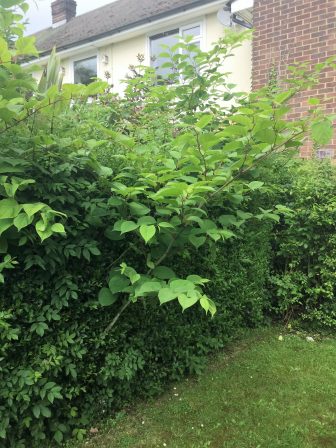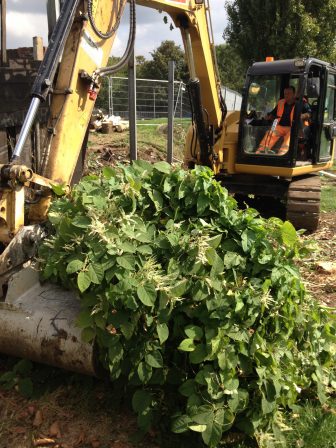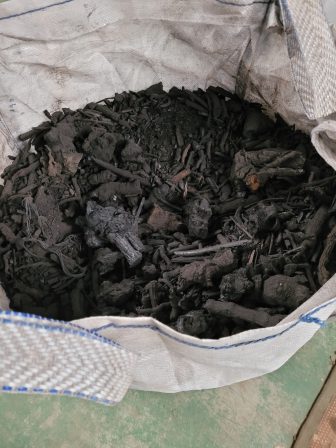
Estate agents are all too aware of the potential problems caused by invasive plant species such as Japanese Knotweed. Many a sale has been lost due this much-feared and much-misunderstood visitor to our gardens.
However, the extraordinary CO² scavenging powers of this plant have, for the first time, been harnessed in the fight against climate change, in the development of a new method of dealing with the waste emanating from its removal from the ground.
Invasive plant specialist Environet UK has developed a patented eco-solution that converts knotweed rhizome into biochar, locking carbon away and eliminating the need for landfill disposal, which is both expensive and environmentally harmful.
The process involves heating the organic matter in the absence of oxygen, otherwise known as pyrolysis, thereby removing naturally occurring tars to leave carbon in the form of charcoal. The charcoal, which benefits from a honeycomb-like structure, can then be charged with additives such as liquid organic fertilisers to create a soil amendment improving soil structure and locking carbon away in the soil for hundreds if not thousands of years.
The Japanese knotweed removal industry generates thousands of tonnes of plant waste every year which is consigned to landfill sites where it either regrows, or decays giving off landfill gases such as methane. As knotweed continues to spread across the UK, now affecting 4-5% of households, a more environmentally friendly solution is urgently required to dispose of this plant waste.
Environet’s solution, granted a patent this month, could potentially be used to deal with all the UK’s Japanese knotweed waste and that produced by other invasive plants such as bamboo and Giant Hogweed. The company already uses a unique eco-friendly excavation method, Xtract™, which sifts infested soil to remove knotweed rhizome before returning the cleaned soil to the ground. Conversion of the remaining rhizome to biochar is the final stage of a completely eco-friendly solution for dealing with Japanese knotweed waste.
Environmental Scientist Nic Seal, Founder and MD of Environet UK, said:

“With the COP26 climate change summit around the corner and the climate crisis reaching the point of no return, we need to act fast to find new ways of dealing with waste which are not just zero carbon, but carbon negative – reducing atmospheric carbon dioxide.
“I’ve been looking for an eco-solution for the Japanese knotweed rhizome we remove from the ground for many years and after a great deal of research, I’m pleased to say we have now successfully developed a method that not only eliminates the need for landfill, but captures all the carbon collected by the plant during its lifetime and locks it away.
“Japanese knotweed may be the villain of the plant world, but for the first time it has the potential to do some good!”
The next stage of Environet’s research will tackle delivering economies of scale, including how to process large quantities of knotweed waste quickly and efficiently, managing emissions produced by the pyrolysis process – and sourcing markets in the agricultural and horticultural sectors for the biochar produced.
The company hopes to be converting all the excavated plant waste it produces to biochar by the end of 2022, as part of its pledge to become a carbon neutral business.
Environet UK publishes an interactive online heat-map showing sightings of Japanese Knotweed across the country.



Comments are closed.